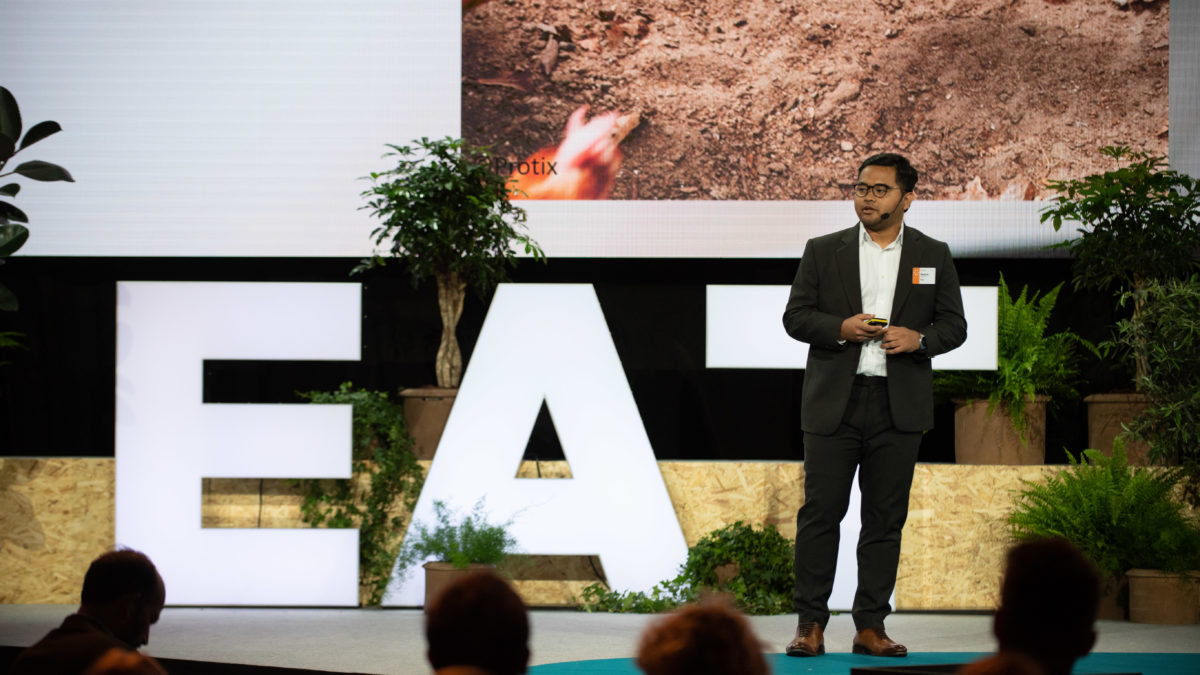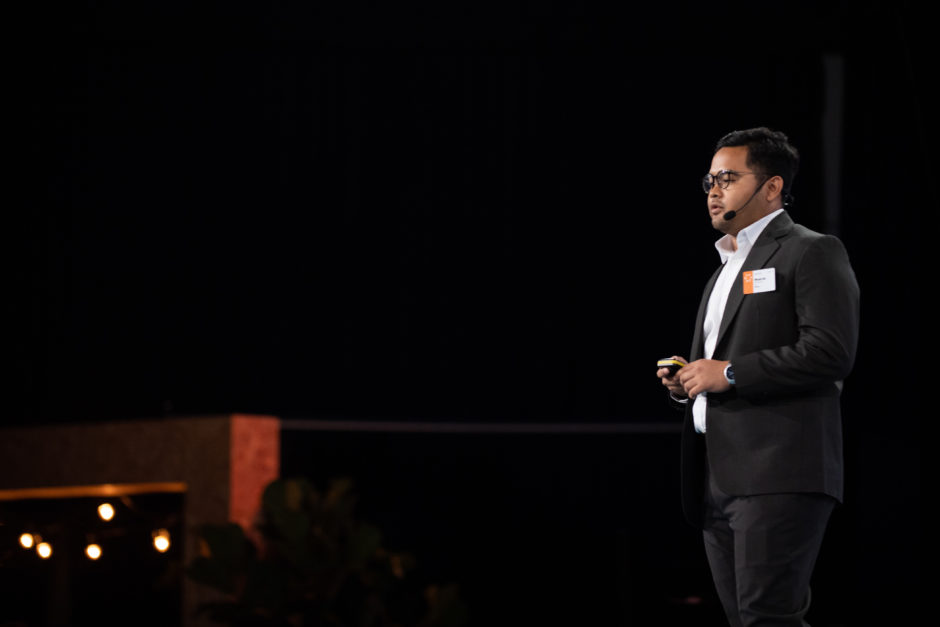
Replacing Palm Oil in Indonesia
In the eleventh episode of the Faces of Food podcast, we meet Mush’ab Nursantio, a fiercely young entrepreneur eager to help create a more sustainable food system.
The 24-year-old is the co-founder and CEO of Biteback, an insect bio-refinery company aimed to meet the increased global demand for palm oil by creating a healthier and more sustainable alternative.
After growing up in Indonesia and witnessing the destruction of natural resources, Nursantio hopes to inspire other developments in innovation around conservation and sustainability in his country.
Don’t miss this episode: How Do We Curb Eating Habits in China?

Insects Could be a Major Solution
Biteback was founded when Mush’ab Nursantio and his friend Ifdhol Syawkoni were studying Agricultural Technology. As an environmental activist, Nursantio had always been fascinated by the role of edible insects. When he started looking into the properties of darkling beetle larvae, he found that it could work as a substitute for palm oil.
Biteback is developing a process technology in extracting and refining darkling beetle larvae. The process allows to access more than 90 percent of the insects fat content and produce high-quality downstream products like cooking oil, butter, fatty alcohol, and biofuel, while also yielding high-quality protein byproducts.
This could, if scaled up, be a solution to one of our biggest challenges: How to feed a growing population healthy and sustainable food.
Faces of Food is available on Apple, Spotify, Castbox, Overcast.